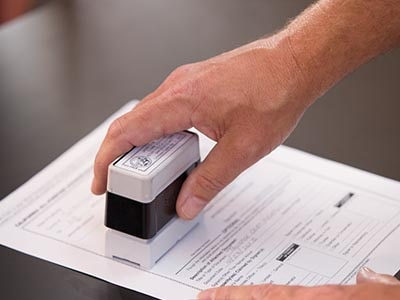Comprehending Apostille: Simplifying International File Legalization
Comprehending Apostille: Simplifying International File Legalization
Blog Article
Debunking Notarial Work: Simplifying the Function and Importance of Notaries
Their function, commonly shrouded in enigma for many, lugs considerable weight in guaranteeing the legitimacy and stability of vital records. By unwinding the intricacies bordering notarial techniques and dropping light on the significance of their acts, a more clear understanding emerges of the crucial duty notaries play in promoting the fabric of legal and legal arrangements.
The Background of Notarial Work
Just how did notarial job develop gradually to become an integral part of legal and company deals? The history of notarial work days back to ancient people, where scribes played a critical duty in videotaping essential info and verifying records. As societies progressed, the requirement for a more formalized system to ensure the legitimacy of contracts developed. This resulted in the development of notaries, individuals appointed by the state to function as unbiased witnesses in lawful matters.
Throughout the Center Ages, notaries obtained importance in Europe, with their functions expanding to consist of composing lawful documents, certifying signatures, and protecting documents. The rise of international trade even more highlighted the relevance of notarial work in validating agreements and arrangements throughout borders.
In the modern period, notaries proceed to play a vital role in legal and business purchases by validating identifications, verifying the authenticity of records, and stopping fraud. Their role in accrediting the credibility of agreements includes a layer of protection and trust fund to the ever-evolving landscape of commerce and legislation.

Tasks and Duties of Notaries
Notaries play an essential function in confirming the credibility of papers and the identification of notaries. One of their key obligations is to witness the signing of important files, such as acts, wills, and contracts, to make certain that all events are getting in right into arrangements purposefully and willingly.
Additionally, notaries are tasked with administering affirmations and oaths, which are critical in legal proceedings and the implementation of sworn statements. They certify copies of initial documents, giving guarantee to establishments that the copies hold true replicas of the originals. Notaries need to preserve exact documents of all transactions they oversee to make sure transparency and accountability. Overall, the duties and duties of notaries are essential in protecting the stability and validity of various documents and purchases.
Notarial Certificates and Signatures
Exemplifying careful attention to information, notarial certifications and trademarks act as necessary components in verifying the authenticity of lawful records. Notarial certifications generally have important information such as the date of registration, the names of the signatures, a description of the document, and the notary's official seal. These certificates offer a clear record of the notarial act, ensuring that the paper can be conveniently identified and mapped back to the notary who managed the process.
Signatures play a crucial duty in notarial job, as they indicate the contract and consent of the events included. Notaries meticulously witness the finalizing of documents to verify the identity of the signatures and verify that they are signing of their very own free choice. By affixing their official seal and signature to the document, notaries certify that the needed procedures have actually been complied with and that the document is enforceable and valid.
In essence, notarial certificates and signatures are the trademark of authenticity in legal purchases, giving assurance to all celebrations involved that the files are reputable and binding.
Importance of Notarial Acts

Registration Process Clarified
The notarization process typically starts with the private offering the record to a notary public. Once the identification is validated, the notary ensures that the individual signing the file does so willingly and without any type of browbeating.

Final Thought

Notarial certifications commonly have essential info such as the date of notarization, the names of the notaries, a description of the record, and the notary's official seal. These certificates offer a clear record of the browse around this web-site notarial act, making certain that the document can be conveniently determined and traced back to the notary who oversaw the process.
By attaching their official seal and signature to the document, notaries certify that the essential treatments have been followed and that the record is enforceable and legitimate.
By confirming the identification of the signatories, confirming their willingness to enter right into the agreement, and certifying the day and area of the signing, notaries play a crucial role in upholding the credibility of lawful papers.After the document is authorized, the notary will certainly attach their main seal or stamp onto the paper.
Report this page